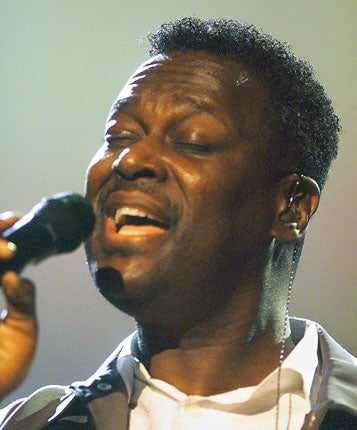Colour Me English, By Caryl Phillips
These coruscating essays benefit from 20 years of deep thinking about race and racism, identity and Englishness...and Luther Vandross

It was a week in which we were told that looting makes the powerless feel powerful; that criminal gangs had masterminded breaking and entering on a mass scale; that those responsible for these acts were lawless, opportunistic thugs intent on "criminality"; that anyone caught rioting would face the full force of the law.
It was a week in which, amid the smoked-out shells of cars and buildings, there was much screeching and calling for the Army to pile in and sort out the mess
And where does it all leave us? In the words of the charity worker and psychotherapist Camila Batmanghelidjh in The Independent, with young people who feel themselves "cut adrift from civil society's legitimate structures"; who do not fear being alienated as social outcasts because that is what they believe society has already done to them: with no jobs and no prospects of higher education, they are the disenfranchised. And while the sight of the police trundling through our city streets in armoured vehicles might sate the blood-lust of some, it provides no long-term vision of where we go next.
Which brings us to Caryl Phillips's Colour Me English. A set of 40-odd essays that the award-winning novelist, playwright and screenwriter has written over the past 20 years, it is a polymorphous delight that always retains at its core the notion of identity: how it is constructed, how it is thrust upon us, how we can change it. It is about our sense of self, how we fit within society – and how both society and individuals must adapt to each other in order for both to thrive. It is an area with which the author has been conversant since his earliest years: born in St Kitts, then raised in England in the Sixties and Seventies, he found that this was not the easiest time to be the only black kid in the school.
Though Phillips writes specifically here about racism and the experiences of immigrants, his cogent argument is equally applicable to the climate in which we find ourselves. We can rail against the evolution of our communities, he says, or we can help smooth the process by "acting with a compassion born of familiarity with our fellow human beings".
Phillips believes his fellow writers can, and should, take a lead in this movement: "There is a directness about storytelling, involving as it does human beings as the central players, which means that we often look first to our writers for news of who and what we are. Words cohering into language form the bedrock of our identity, and explain our human condition."
It is quite the claim for a profession that he himself admits has had its impact dulled by the culture of celebrity ("In this brave new world, the writer's voice is no more important than that of a model or an actor"), but in the very act of penning these pieces, Phillips proves the importance of those who can marry insight and readability. For while his subject matter is often academic (the role of seafaring in the creation of African-American identity; an exposition of Othello's self-doubt as an outsider; the socio-economic collapse that exacerbated right-wing anxiety in Belgium), he argues eloquently for a liberal, and thus liberating perspective, and his coruscating prose is captivating.
He mulls over topics ranging from personal reminiscences (including living through the terror attacks in New York and a devastating critique of the poisonous atmosphere created by George W Bush's government post-9/11) through overtures to lesser-known writing greats such as the Harlem Renaissance author Claude McKay, to fascinating titbits such as the Mizo people in South-east Asia, who fancy themselves a lost tribe of Israel and observe the Passover by eating bread without yeast on one day of the year (even though they never eat bread at all during the rest of the year). And while these topics might seem disparate, those notions of displacement and connectedness that are so vital to society and tribal identity run throughout.
There is even space for a tribute to Luther Vandross – a subject one might think would draw Phillips away from the point at issue. But the leitmotif is present even here. "The theme of thwarted love, familial and romantic [that is clear in Vandross's songs], forms a strong line in the African-American narrative tradition," he writes. "After all, the participation of Africans in the American world was preceded by the tearing asunder of lovers and families, first on African soil and [then]... by the grim realities of American plantation slavery."
If there is criticism to be had, it is that occasionally the object of Phillips's attention is so esoteric (chapters on Lafcadio Hearn – who he? – and an odd little number on his climbing of Kilimanjaro) that the book loses some impetus. But, as a Brit transplanted to the US for work (he is currently a lecturer at Yale), Phillips places himself in the tradition of James Baldwin, Chinua Achebe and Ha Jin as a writer who, by moving abroad, has gained perspective on his homeland. And it is a perspective we would do well to learn from if we are to put the lawlessness of the past week behind us.
To order any of these books at a reduced price, including free UK p&p, call Independent Books Direct on 0843 0600 030 or visit independentbooksdirect.co.uk
Subscribe to Independent Premium to bookmark this article
Want to bookmark your favourite articles and stories to read or reference later? Start your Independent Premium subscription today.

Join our commenting forum
Join thought-provoking conversations, follow other Independent readers and see their replies